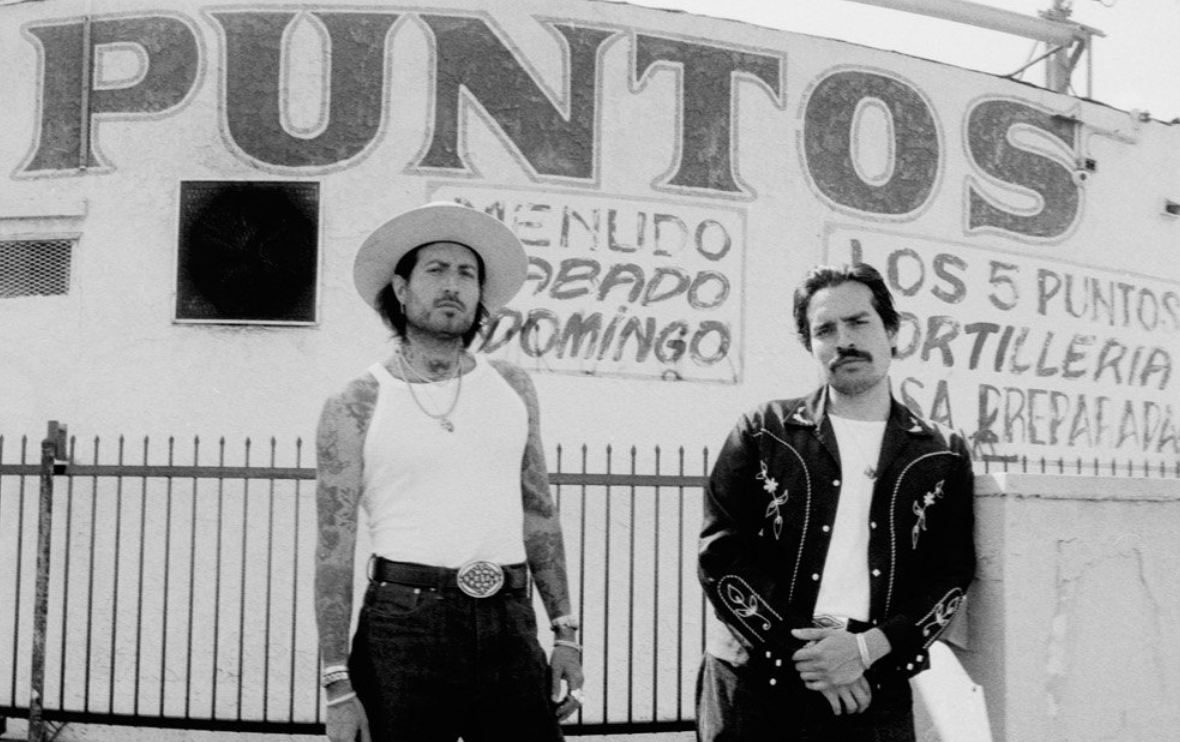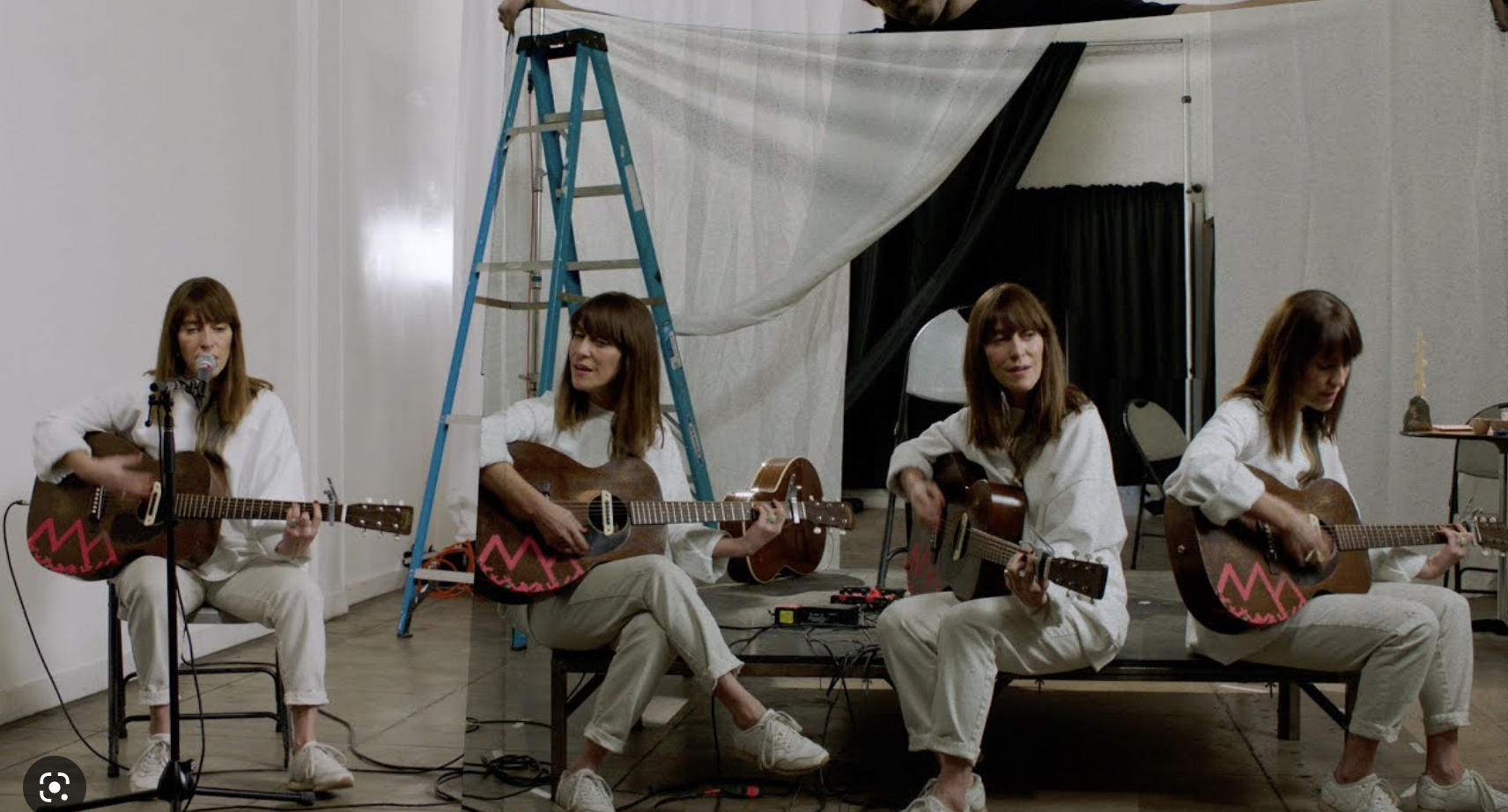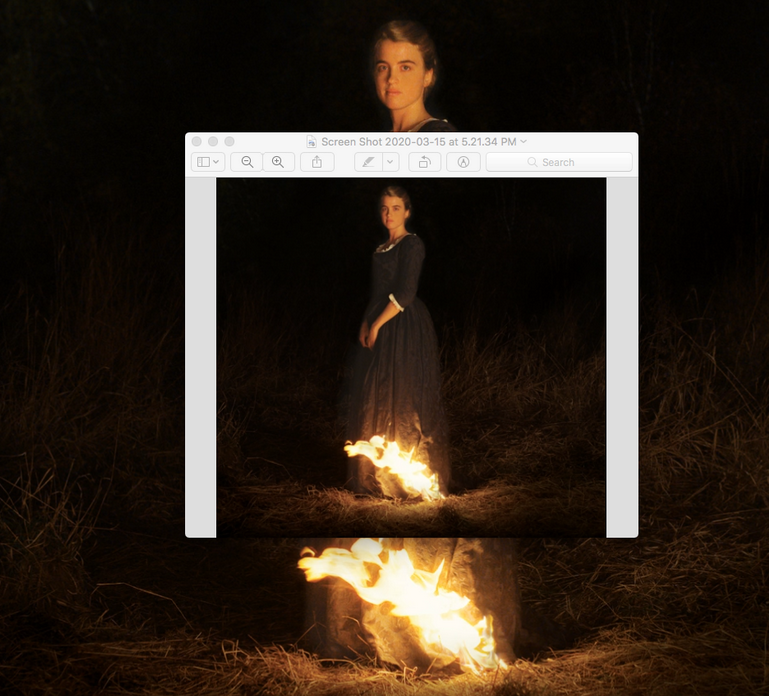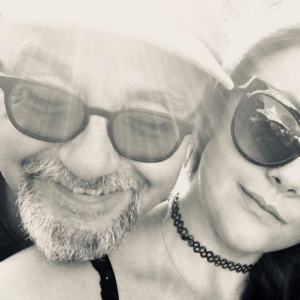NEW RELEASE
Revolutionary Love by Ani DiFranco CONTENTS
- INTRO: Ani DiFranco: Still Growing Strong
- REVIEWS: In the New Yorker, AllMusic and musicOMH
- PLAYLISTS: On Spotify and YouTube
- ESSAY: DiFranco penned a piece for No Depression magazine on “Revolutionary Love and Tending to Wounds” in which she discusses author Valarie Kaur’s book, See No Stranger. read it here.
- RELATED POST: In Kurated No. 117, read about DiFranco and listen to her recent 3-song set for NPR’s Tiny Desk (Home) Concert.

STILL GROWING STRONG
30 years into a storied career the feminist folk icon continues to challenge herself and her listeners
Thrilled to bump into Ani DiFranco at Jericho Beach Park during the 1992 Vancouver Folk Music Festival, I immediately asked her to autograph my just-purchased cassette tape of her latest release, Imperfectly. She paused, looking a little puzzled. In turn, so did I wondering: am I the first person who’s ever asked her this? Had she never met a fan boy – albeit one 15 years her senior? No matter. She pleasantly obliged and I happily walked away with my prize.
DiFranco was making her Vancouver debut that year and astounding the masses. She was one of the Festival stars but eschewed such labels. Her performances were refreshingly irreverent and she was on a supercharged mission to skewer the status quo. Through her energetic guitar-playing and well-observed lyrics, she made a passionate case for system overhaul. (In retrospect, I observe that for the 22 year-old activist anti-star, signing autographs likely didn’t fit the job description.)
In the ensuing years I tried to keep up with her prolific output in the 1990s and early aughts. Through my association with Festival Distribution – which handled her Canadian account – I received complimentary Ani CDs as one of the percs of doing their graphic design jobs. Eventually, though, I lost track of DiFranco’s ever growing discography but kept in touch via her live performances at the Festival and elsewhere – the most recent was a stellar set at The Playhouse in November, 2017.
If, like me, you haven’t heard her recordings in a while the new release, Revolutionary Love, will surprise. While her work has always been varied – ballads as tender as any of her fervent commentaries are strong – the new collection demonstrates deep musical acumen by an artist who continues to grow with and through her art. The instrumentation is complex and full. Her supple voice lingers over the lyrics; her staccato guitar style has transformed into slower paced, soulful and jazz-flavoured sounds.
Writing for AllMusic.com, Thom Jurek notes that DiFranco has lived in New Orleans for some time and that “many of its musical traditions have burrowed their way into her artistic DNA”. (He awards the album 4.5 stars. His descriptive review is below.)
Working a new theme of understanding
At 50, DiFranco continues to challenge herself and her audience. The inspiration for the title track comes from her reading of friend and colleague Valarie Kaur’s book – See No Stranger: A Memoir and Manifesto of Revolutionary Love.
As an activist artist DiFranco has done her share of shit disturbing and calling out all “isms” and their perpetrators. And while she isn’t changing her politics here, she is committing to a different tactic – that of encouraging understanding and dialogue.
In an essay for No Depression magazine she looks at author Kaur’s three strands of revolutionary love. Here’s one:
“Opponents are those whose beliefs, words, or actions cause us harm. Opponents, she describes, entreat us to go further and become more focused as we stay curious. We must actively tend the wound — first in ourselves and then in them. Our opponents may be remote or they may be amongst the people closest to us, either way, we must first take care of our own needs (tend the wound in ourselves) and then, when that is safely accomplished, we can endeavor to tend the wound in the opponent. We may not be able agree with or condone or control our opponent’s actions or words, but we can ask ourselves: Where is the wound in this person? And then we can simply tend to it. This becomes the reorientation that shifts the possibility for dialogue and allows miracles like understanding and cooperation to unfold.”
She contends that Revolutionary Love is the “call of our time”. Who’s to say? But something I know about Ani DiFranco is that her integrity backstops good instincts. She’s a deep and insightful thinker and always worth a listen.
~ Kris Klaasen
Kurated is a music sharing project.
Stay tuned and enjoy!
12 June 2021
REVIEWS

The New Yorker
So much of Ani DiFranco’s career feels like an act of rebellion: the blunt songs she began writing as a precocious kid; the independent music label she started in her twenties, after refusing to sign with the corporate record companies that had been courting her. It’s perhaps surprising, then, that “Revolutionary Love”—an album centered on today’s political turbulence—isn’t seething with the barbed defiance of her earlier work. Inspired by “See No Stranger,” a book by the Sikh-American activist and lawyer Valarie Kaur, DiFranco instead endorses love and compassion as radical tools to process rage, grief, and tumult. Robust melodies, padded with streaks of soul and jazz that represent some of DiFranco’s fullest productions yet, prop up a challenging attempt at peace and healing.— Julyssa Lopez
AllMusic.com
by Thom Jurek
For more than three decades, Ani DiFranco has made the personal political and vice versa. Whether playing solo, working the road with her trio, or in a studio with a raucous band, she has consistently shown unflinching honesty in critiquing the myriad ways in which power informs relationships across racial, social, gender, economic, environmental, and romantic lines in an astonishing variety of musical contexts. DiFranco has also called New Orleans home for some time; many of its musical traditions have burrowed their way into her artistic DNA. While on the road in 2019, seeing America tear itself apart under Trump, DiFranco wrote songs and read Sikh activist and civil right lawyer Valarie Kaur’s See No Stranger, a memoir/manifesto for accountable, compassionate living in catastrophic times. DiFranco returned home as COVID-19 became a global pandemic. She felt she needed to “get people inspired to vote…believing in democracy, believing in each other and in themselves.” In February, just before lockdown, she traveled to co-producer Brad Cook‘s North Carolina studio and cut this 11-song set in two days with her trio and local luminaries including Hiss Golden Messenger, Mountain Goats, Mipso, etc. With them she illustrated these songs at the blurred edges where soul, folk, and jazz-pop intersect.
As a whole, Revolutionary Love is economical and smooth. The title track is drenched in gentle yet gritty soul. As a slide guitar, brushed snare, and Wurlitzer pave the way, one can hear traces of Percy Mayfield in the…
musicOMH.com
It’s been a tumultuous few years for the world in general, and Ani DiFranco has been uncharacteristically quiet. The New York native is famously prolific (she managed to release 10 albums during the 1990s), but motherhood and writing a memoir, No Walls And The Recurring Dream, means that the recording process has been put on the backburner somewhat.
Yet that doesn’t mean she’s silent about what’s been happening in the United States (and the wider world) over the last few years – although don’t expect to hear the explicit anger and defiance that marked her earlier work. DiFranco’s sound has slowly morphed from the furious, frenetic folk that made her name, and Revolutionary Love sounds much like her much like her more recent output: languid, deliberate jazzy laments that blend the personal with the political.





